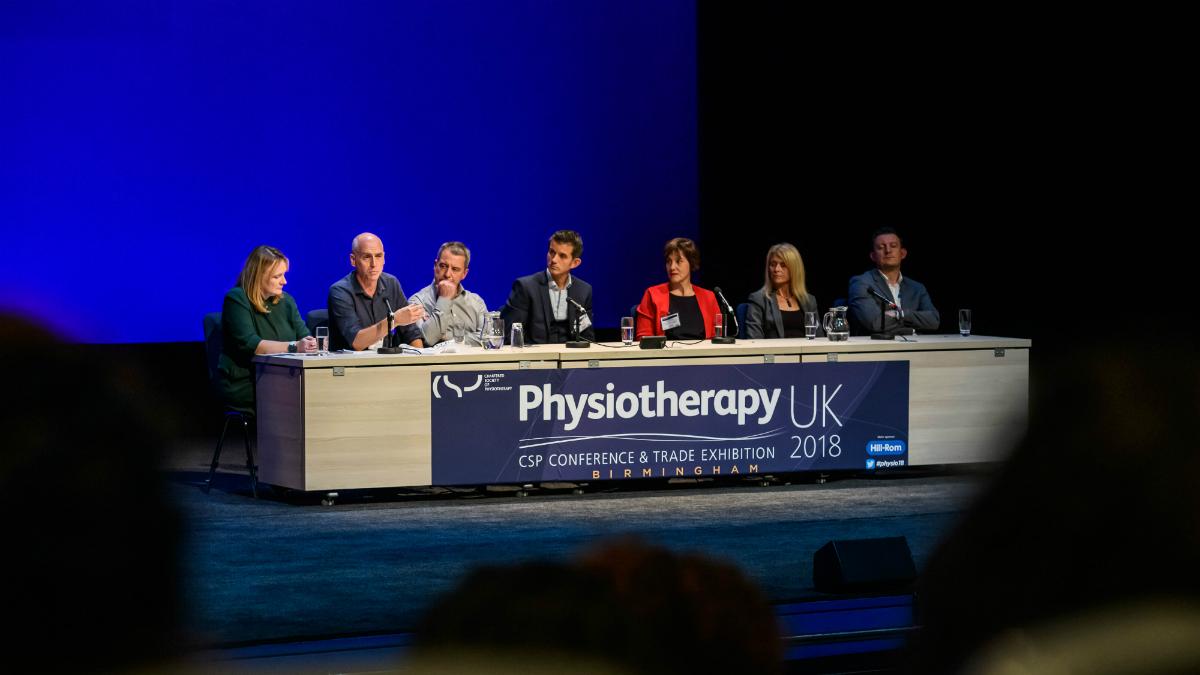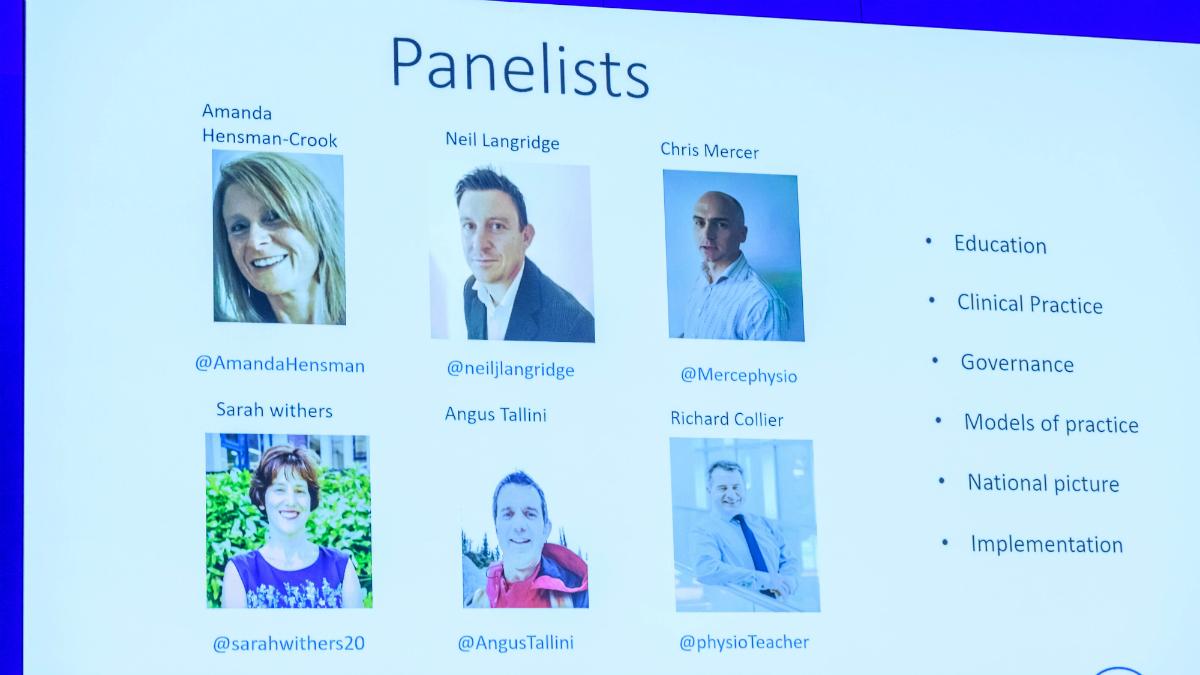The role of first contact practitioners (FCP) was the subject of a spirited, open debate as part of Physio UK’s Question Time-style panel discussion.

The session’s chair, Helen Welch, clinical lead at Cwm Taf University Health Board, asked how many audience members were currently working in FCP roles. Around a third signalled they were.
‘The concept of first contact practitioners is not particularly new,’ said Neil Langridge, consultant physiotherapist in musculoskeletal practice at Southern Health NHS Trust. ‘With the crisis in general practice and an overload of musculoskeletal issues, there is a need for MSK expertise. Clinically, we are seeing more physios moving from secondary care to primary and community care.’
A member of the audience asked whether extended scope practitioners were being replaced by FCPs. ‘Advanced practitioner roles offer variety and opportunities for physios to step up,’ said Chris Mercer, consultant MSK physiotherapist at Western Sussex Hospitals NHS Trust. ‘Whether the role is called a cat or a dog, it doesn’t matter.’
Funding was highlighted as an issue around the use of FCP roles within primary care. ‘As nice as it would be to have an FCP in my surgery every day, it isn’t going to happen,’ Dr Angus Tallini, GP partner at the Falkland Surgery, Newbury, said. ‘It’s shared roles and partnership working that will help to unlock funding.’
Richard Collier, clinical lead for musculoskeletal practitioners in primary care at Health Education England also felt part of the problem was limited opportunities in education. ‘There are barely any rotations into primary care at undergraduate level.’

A discussion developed around appropriate banding for the first contact practitioner role. Mr Collier advised that the MSK core capabilities framework did not dictate level of practice. ‘It’s a guidance document, not a mandate,’ he said.
‘An FCP physio is someone working at the top of their licence,’ argued Amanda Hensman-Crook, advanced first contact physiotherapist in primary care at Windermere and Ambleside Health Centres. ‘In primary care, MSK knowledge plus frailty and complex comorbidity understanding is required.’
The issue of how to introduce yourself to a patient when you are in an advanced role was also discussed. ‘It is important to say you are a physiotherapist,’ Sarah Withers, the CSP’s head of implementation for first contact physiotherapy advised. ‘Patients don’t always understand banding or medical terminology.’
Find Out More
Number of subscribers: 2



































